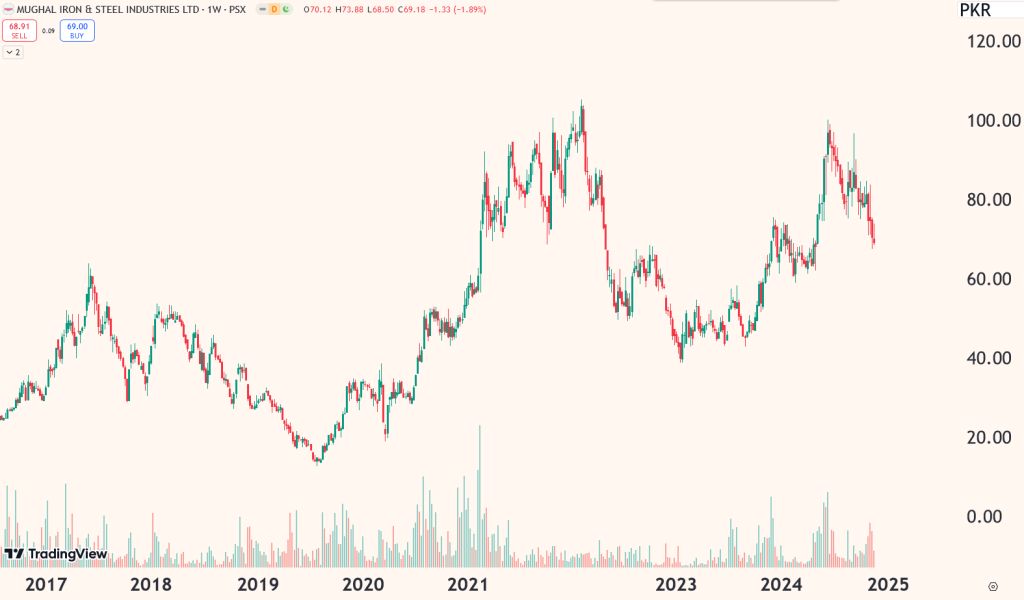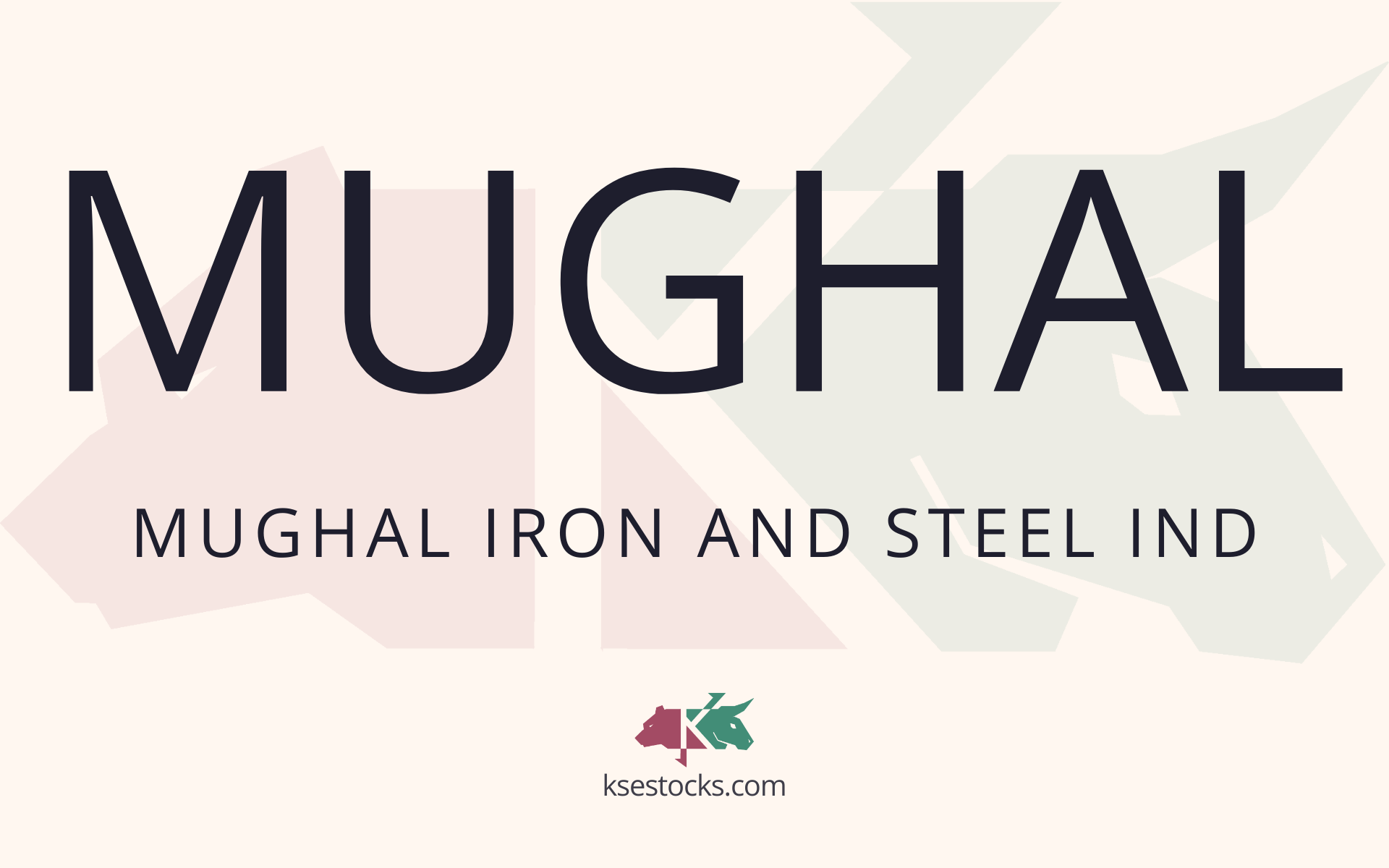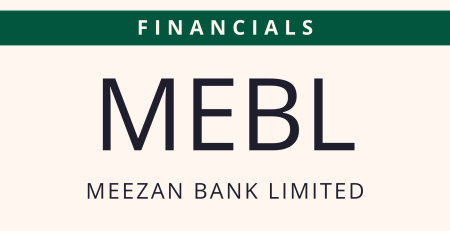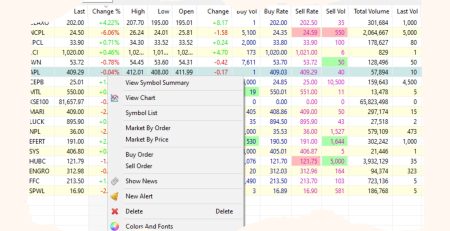MUGHAL right shares – 3 things to know before subscribing
On November 5, 2024, Mughal Iron & Steel Industries Limited (MUGHAL) announced a unique rights share issue involving 50,000,000 new Ordinary Class-C shares. This offering brings several distinctions compared to traditional rights issues, particularly regarding voting rights. Let’s break down the specifics of this offering and why it stands out.
Details of the MUGHAL right shares issue
- Number of Shares Issued: 50,000,000 shares.
- Face Value: Rs. 10 per share.
- Offering Price: Rs. 30 per share, including a premium of Rs. 20.
- Entitlement Ratio: Approximately 14.90 Class-C right shares for every 100 existing ordinary shares.
- Purpose: To replace some of the debt-financed working capital with equity-financed working capital.
Things to know before buying MUGHAL right shares
1. No dividend or bonus rights
Holders of Class-C shares will not be entitled to dividends or bonus shares declared by the company. This makes them distinct from typical rights offerings, where dividend entitlement is standard.
For retail investors, dividends often provide a steady source of income and are a key attraction of equity investments. The absence of dividends makes these shares unattractive for those who rely on or expect regular cash flow from their investments.
📢 Announcement: We're on WhatsApp – Join Us There!
2. Unlisted Shares:
Unlike traditional rights shares that are listed on the stock exchange, the Class-C shares are unlisted(meaning you cannot trade them on the stock exchange), adding another layer of exclusivity.
For retail investors, this is problematic as they want to be able to easily liquidate their funds when needed. They cannot do this when the shares aren’t traded on the market.
3. Increased Voting Rights
Each Class-C share carries fifty voting rights per share. This significant voting leverage compensates for the lack of dividend rights, making the offering particularly appealing to those interested in influence over company decisions.
Don't miss:
- Which cars are driving the rally in auto stocks?
- 5 High ROE stocks according to Topline Securities
- Why TPLP could go higher.
While the Class-C shares offer substantial voting rights (fifty votes per share), retail investors often lack the collective influence to sway major decisions in a company. The enhanced voting rights may not be practically valuable to individual investors who hold relatively small amounts of stock.
To truly benefit from the voting rights, a retail investor would need to own a substantial portion of these shares, which may be out of reach for many due to the associated costs.
Is this legal?
The right share issue is of course legal. They are being offered to all shareholders, so no one should complain. But it does raise some questions about the management’s intentions because retail investors have little incentive to hold these shares as they are neither traded nor will receive any portion of profits,
The practice is common in the USA where companies like Google and Facebook have similar structures. However, it is banned in the UK and Australia.
MUGHAL has a 25% free float, which means the company still holds 75% of the shares, which is what is required in Pakistan to appoint a new CEO.
After the issuance of these right shares, the newly issued 50 million shares will enjoy 88% of the voting power.
In this way, the current management will further cement its power on the company while retail investor’s voting power will reduce(unless all retail investors subscribe to the right shares).
MUGHAL’s history of right shares
Mughal Steel has issued right shares twice before.
| Year | Right Shares |
|---|---|
| 2021 | 16% AT A PREMIUM OF Rs.58/= PER SHARE (R) |
| 2017 | 100% AT PAR VALUE OF Rs.10/= PER SHARE |
Here is how the stock has performed in the last 10 years

Retail investors need to ask themselves the question if they really want to be part of this considering the company’s lackluster performance. Consider also the fact that the steel industry is facing tough times, which is what has necessitated this right issue in the first place.
Conclusion
Retail investors could potentially find better value in other equity opportunities that offer both capital appreciation and dividends, without the restrictions tied to this rights issue.
⚠️ This post reflects the author’s personal opinion and is for informational purposes only. It does not constitute financial advice. Investing involves risk and should be done independently. Read full disclaimer →















Comment (1)
Strange type of right shares. Thanks for the article.